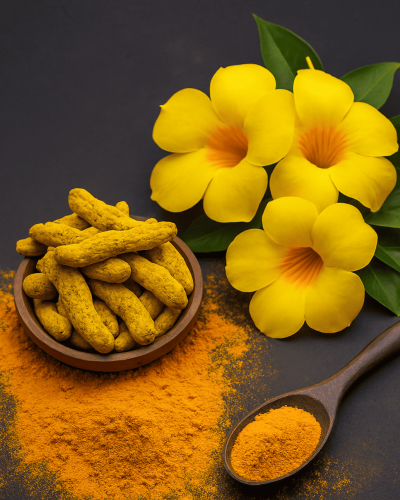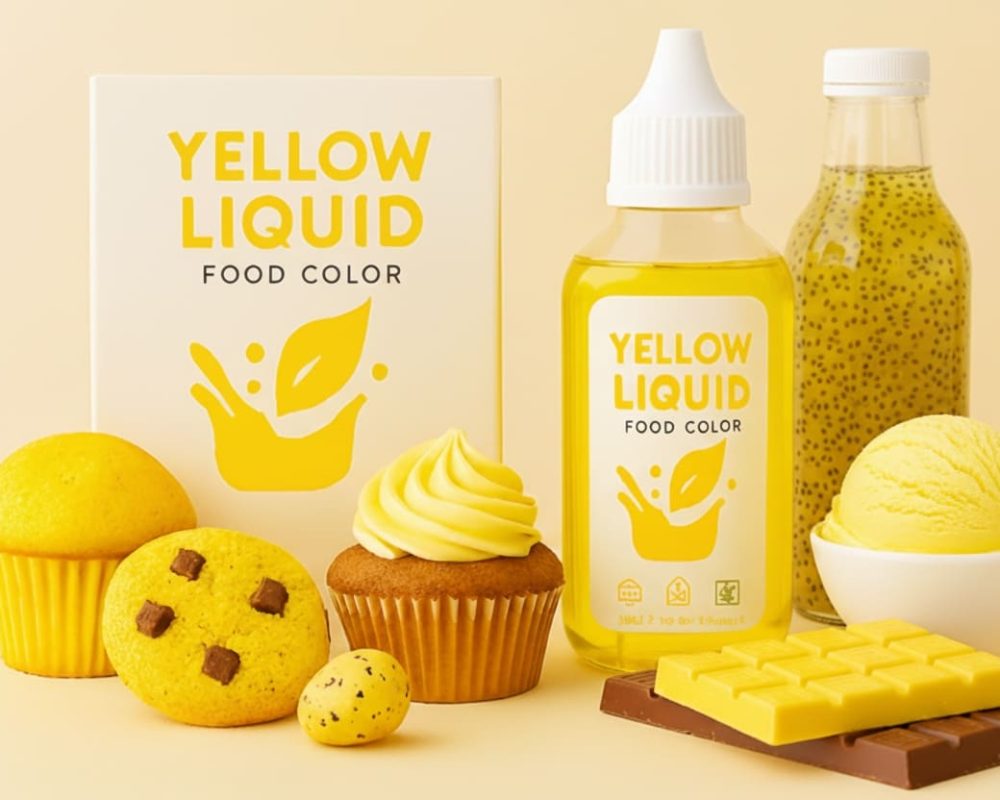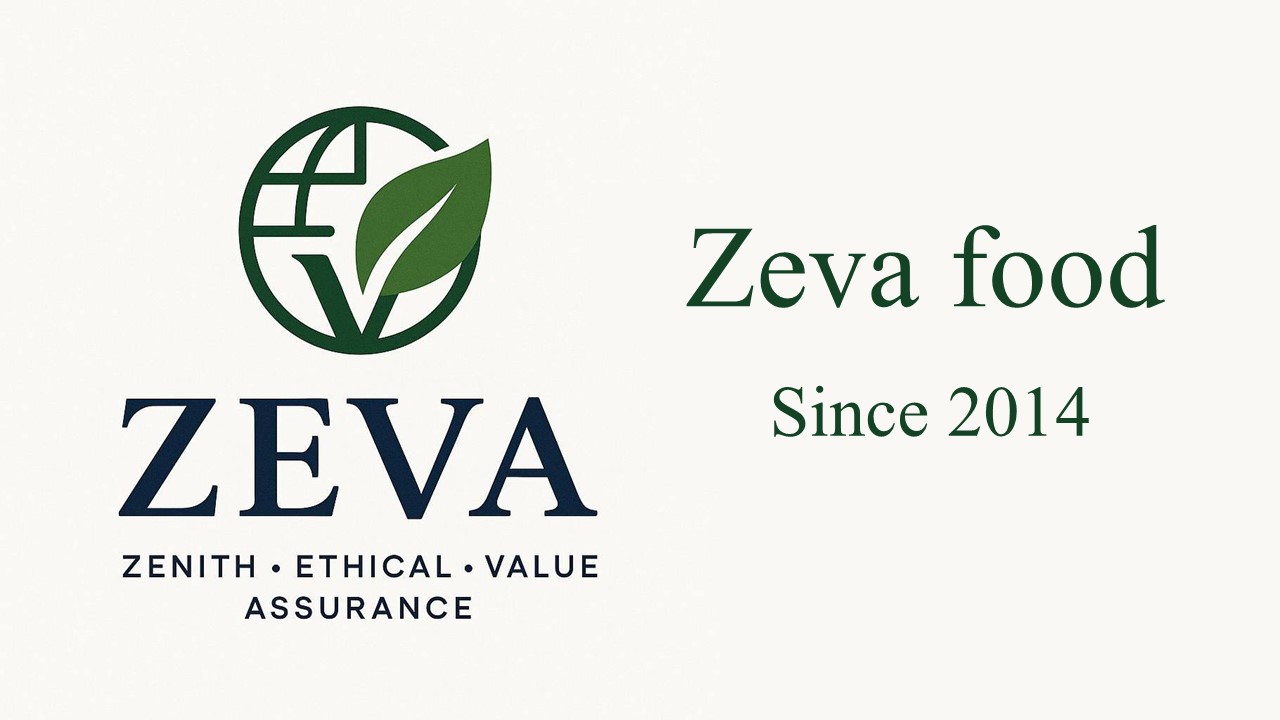Turmeric Yellow
Turmeric-Based Natural Yellow Food Color (E100): Natural, Functional and Export-Ready
Turmeric Yellow is a natural food color derived from the root of Curcuma longa, widely known for its vibrant golden-yellow hue. Rich in curcumin, this plant-based color not only provides a visually appealing yellow to warm orange shade but also offers functional benefits, making it a versatile ingredient for a variety of food applications. Unlike synthetic colors, Turmeric Yellow is a clean-label, sustainable option that aligns with modern consumer demands for natural and healthy products.

Origin and Composition
Turmeric Yellow’s coloring power comes from curcumin, the active compound in turmeric. Curcumin is responsible for the characteristic yellow color and contributes antioxidant properties that enhance product stability.
- Solubility: Water- and oil-compatible formulations available
- Color range: Bright golden yellow to warm orange
- Functional benefits: Natural antioxidant and wellness-promoting properties
Health and Functional Benefits
Curcumin, the key pigment in Turmeric Yellow, offers numerous advantages beyond coloring:
- Antioxidant protection: Helps prevent oxidation of lipids and proteins, extending shelf life
- Natural and safe: Free from artificial additives and harmful synthetic dyes such as Tartrazine
- Clean-label ingredient: Supports consumer trust in natural, plant-based foods
Applications Across the Food Industry
Turmeric Yellow’s versatility and stability under moderate heat make it ideal for:
- Dairy Products: Cheese, yogurt, ice cream, cream
- Beverages: Juices, energy drinks, plant-based milks
- Bakery & Confectionery: Cakes, sponge, cookies, pastries, frosting
- Snacks & Pasta: Macaroni, coated snacks, ready-to-eat products
- Sauces & Dressings: Mayonnaise, curry sauces, salad dressings
Its bright, natural color ensures visual appeal while maintaining a clean taste profile compatible with a variety of pH levels and emulsification systems.

Regulatory and Technical Information
In the European Union and many international markets, curcumin is approved as a natural yellow food color under the code E100. It is considered safe for consumption within the recommended dosage range and is valued for its plant-based origin and clean-label appeal.
Curcumin offers strong heat stability and delivers a bright, golden-yellow hue, making it an ideal choice for a wide variety of food and beverage applications.
| Property | Description |
|---|---|
| Active pigment | Curcumin |
| Solubility | Water- and oil-compatible |
| Recommended dosage | 50–200 mg/kg (depending on desired shade) |
| Heat stability | High (suitable for cooking and baking) |
| Light stability | Moderate, best stored away from direct sunlight |
| Shelf life | 12–24 months (cool, dry storage) |
| Packaging | Food-grade drums or HDPE containers, suitable for export |
Comparison with Synthetic Colors
Compared to synthetic dyes like Tartrazine (E102), Turmeric Yellow offers a safe and plant-based alternative with no harmful additives. While artificial colors may deliver intense shades, they raise health and labeling concerns among consumers.
Turmeric Yellow provides a natural, non-toxic, and clean-label solution that meets global food safety and consumer transparency standards.
Sustainability and Clean-Label Advantage
Turmeric Yellow is sourced from renewable plant materials and produced through eco-friendly processes with minimal environmental impact.
It supports clean-label trends by offering a natural color free from petrochemical ingredients, helping brands promote sustainability, health, and trust in their products.
Export and Supply
Turmeric Yellow Natural Food Color is supplied exclusively in liquid form, ensuring excellent dispersibility and uniform coloring in food applications.
It meets international E100 standards and is packed in export-grade HDPE containers designed for stability and shelf-life protection.
